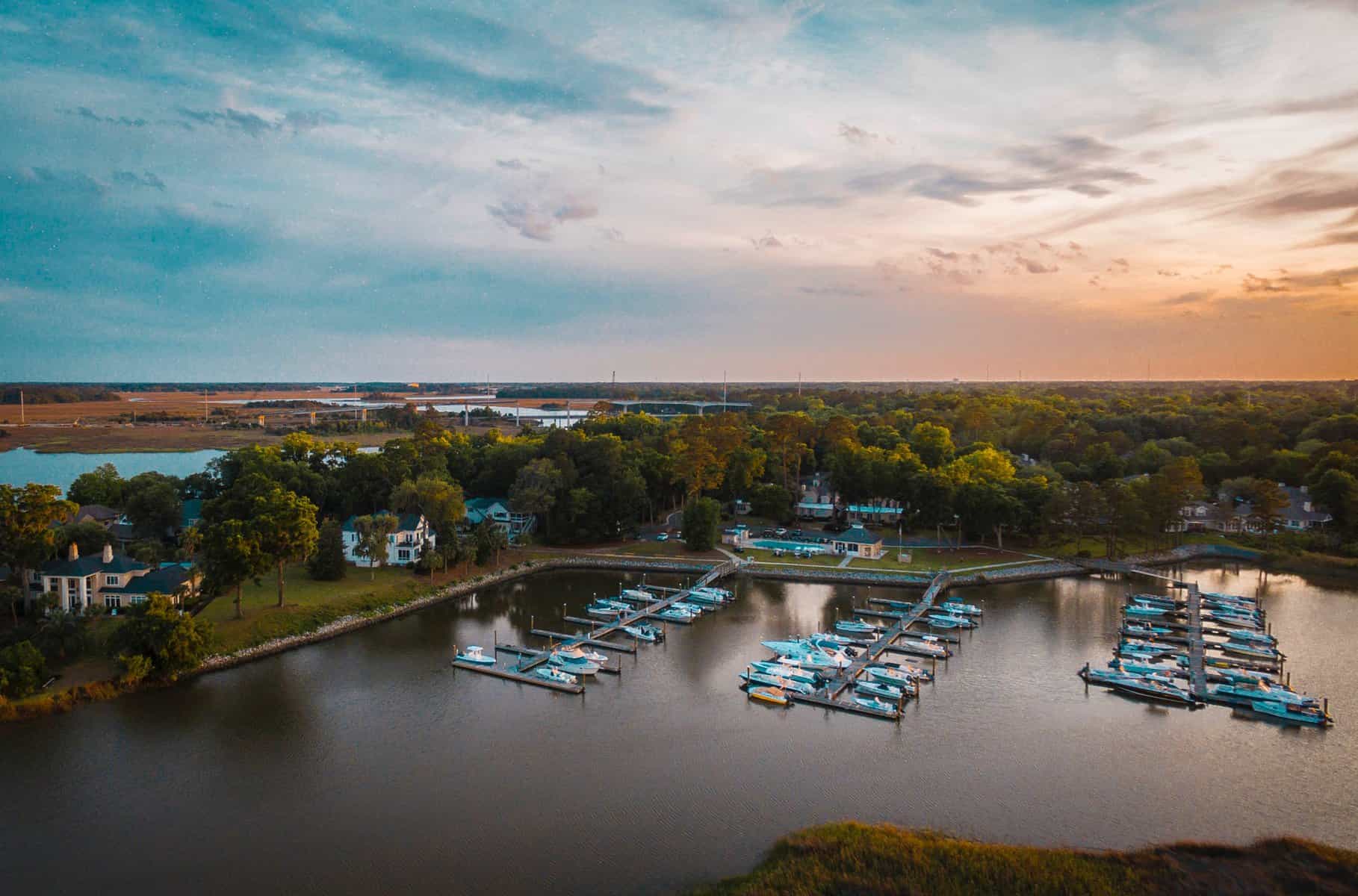9 Steps To Buying a House in Georgia 2022
August 9, 2022
Georgia has been seen as a desirable place to live for many years. The state offers a great climate, low cost of living and property tax, along with a variety of recreational activities to partake in when you have free time. However, the Georgia housing market has gotten extremely competitive, making it difficult for buyers to find affordable homes.
According to Zillow, the typical home value in Georgia is $316,705, which is a 27% increase from last year at $260K. If you’re wondering about the steps to buying a house in Georgia, then this guide is for you. This blog post goes through everything you need to know about purchasing a home successfully in the state of Georgia.
How To Buy a House in Georgia
Step 1: Save For The Down Payment
The down payment is the largest upfront cost and hurdle for first-time home buyers in Georgia. The down payment is typically required by the mortgage lender and is a lump sum of cash that you will need to pay the seller on closing day. Different lenders have different requirements for the down payment, but typically you will need to have 3.5% – 20% of the home’s purchase price saved up. For example, at the average Georgia home price of $316,705, a 20% down payment would cost $63,341.
There is a common belief that home buyers need to pay a 20% down payment in order to qualify for a mortgage. However, that belief is not true. The main benefit to paying a 20% down payment is to avoid having to pay private mortgage insurance (PMI). There are now many lower and no-down payment mortgage options available, especially for first-time home buyers. Conventional loans are the most common type of mortgage for first-time home buyers and the minimum down payment is usually 3% – 5%. Government-backed loans like FHA, VA, or USDA loans can have even less of a minimum down payment with some loans requiring nothing at all.
Also, the Georgia Department of Community Affairs has the Dream Homeownership Program that offers down payment assistance to low and moderate-income home buyers. To be eligible for the program you have to be a first-time home buyer, a home buyer who hasn’t been a homeowner in the past three years, and a buyer purchasing a house in a certain area.
Step 2: Assess Your Financial Situation
The down payment is an important cost of the home-buying process, but it’s not the only factor you need to consider when purchasing a dream home. There are many other costs associated with buying a house that will chip away at your wallet, so it’s important to have a realistic idea of the total costs and your own financial situation before buying a house in Georgia. Here are a few of the costs to consider when buying a house:
- Closing Costs
- Earnest Money Deposit
- Home Inspection
- Property Taxes
- Homeowners Insurance
- HOA Fees
To be approved for a mortgage, lenders require borrowers to have a debt-to-income ratio (DTI) of 43% or less as the highest. On the low end, mortgage lenders may require a debt-to-income ratio of no higher than 28%. Getting your debt-to-income ratio in a good place before applying for a mortgage is one of the first steps to take before buying a house. Your credit score also greatly affects the mortgages that you are eligible for and the interest rates you will be offered. The recommended credit score when getting a mortgage is 620 or higher.
Step 3: Get Pre-Approved For a Mortgage
Getting pre-approved for a mortgage is a process where the lender checks your credit score, employment history, and financial information to determine if you are eligible for a mortgage loan up to a certain amount. Being approved means that you have a much better chance of being approved for the loan once you find a house.
It also means that the seller will be more likely to accept your offer because a pre-approval shows that you are a serious buyer with the ability to get financing. Pre-approval, however, is only valid for 30 – 90 days so it’s important to get pre-approved closer to when you plan on buying a house.
Step 4: Choose The Lifestyle You Want
Georgia is home to many different types of neighborhoods and houses. From bustling cities like Atlanta to rural areas and small towns, there’s a community for almost everyone in Georgia. When you’re looking for a place to live, it’s important to consider your lifestyle and what kind of environment you want to be surrounded by.
Do you want to live in the city or the suburbs? Do you want a big house or a small condo? Do you want a yard or a low-maintenance home? Asking yourself these questions will help you narrow down your search and find the perfect place to call home. These questions will also help you define a budget and what you’re willing to spend in total on a house.
Step 5: Start Working With a Real Estate Agent
There’s a lot to manage when you’re buying a house in Georgia – from finding the right house to negotiating the best deal with the seller. Having a good real estate professional on your side can be helpful to guide you through the home buying process with minimal concerns and mistakes.
In competitive housing markets like many of Georgia’s, a good real estate agent is imperative to work with as you will have to move quickly on the right house. Competitive or seller’s markets can make it difficult for buyers to make a deal with the seller that is best for both parties. This is where Negotiators come in. Negotiators are top-performing real estate agents who have closed a large volume of real estate deals and are skilled in the art of negotiation.
If you’re looking to buy a house and need help from a Georgia real estate agent who knows how to navigate these markets, search for local Negotiators here.
Step 6: Begin House Hunting
With the help of a real estate agent, this is what could be considered the fun part of the home buying process. The house hunt is where you’ll finally get to see all of the different types of homes available in your budget and desired location.
You’ll begin attending open houses and scheduling private showings to get a better idea of what you do and don’t like in a house. It’s important to take your time during this process and not to rush into any decision. This is a huge purchase, and you want to make sure that you’re buying a house that you’ll be happy with for years to come. It may help to create a list of non-negotiable needs that you need in your next home against the qualities that you desire.
The things that you desire are sacrificial in the sense that you may be willing to give them up if it means getting everything on your needs list.
Step 7: Make an Offer on a House
Making an offer is a crucial aspect of the home buying process. The offer represents your interest in the property and will serve as the basis for all negotiations afterward. It sets the precedent for how the rest of the transaction will play out, so the offer needs to be well structured and thought out. An experienced real estate agent can help you put together a strong offer that protects your interests, engages the seller, and helps you get the home you want. There are a variety of components to an offer and if you’re preparing one, here are a few elements to include:
- Amount of money you want to offer on the house
- Contingencies
- Concessions
- Amount of earnest money deposit
- Preapproval letter
- Expected closing date
- Expected Move-in date
- Deadline to respond
Step 8: Get an Inspection and Appraisal
After your offer is accepted, the home will need to be appraised to ensure that the price you’re paying is in line with the current market value. An appraisal is when a professional inspector does a thorough examination of the property to assess its true worth apart from the listing price. An appraisal is usually required by the mortgage lender and once the appraisal is complete, you’ll be one step closer to finalizing your loan and getting the keys to your new home.
However, even though appraisals can reveal issues within the property the purpose is not to be a home inspection. It’s important to schedule a separate home inspection with a certified inspector to get a detailed report of the property’s condition. Buying a house that has problems like a faulty roof or electrical wiring can be a nightmare and cost you a lot of money down the road. A home inspection will give you an accurate picture of the property’s condition so that you can make an informed decision about whether or not to move forward with the purchase. Many lenders also require inspections in order to finalize a loan.
Step 9: Close on the House
Closing is the final and most important step in buying a house in Georgia. This is when the ownership of the property is officially transferred from seller to buyer and the mortgage is finalized for the loan amount. In Georgia, you will have to meet at the title company to sign several documents and settle your closing costs. The state of Georgia requires a real estate attorney to handle and be present on closing day which means the fee for the attorney will also be included in your closing costs.
Looking for a good Georgia real estate agent? The Negotiators is a TV series that features some of the best real estate agents in the state of Georgia. Each episode centers around a top-performing Georgia real estate agent in a different city and shows how each agent works to get their clients the best deal possible. If you’re looking to buy a house in Georgia, then check out the series on Reveel.


